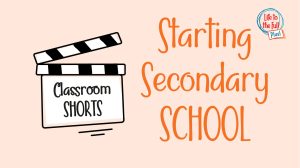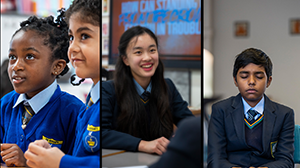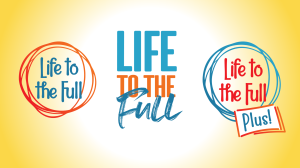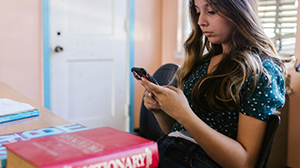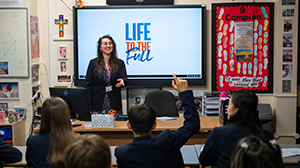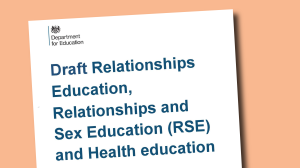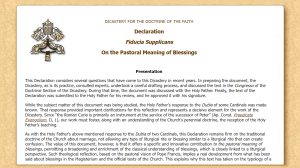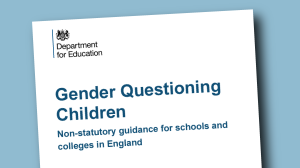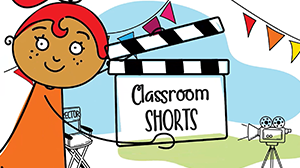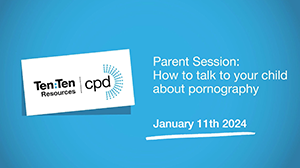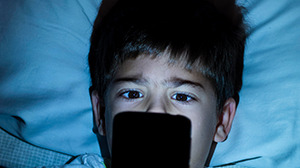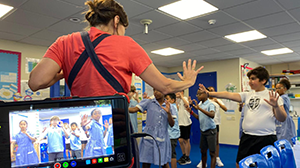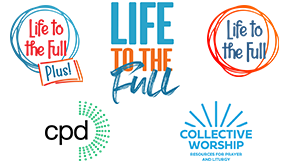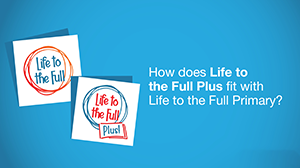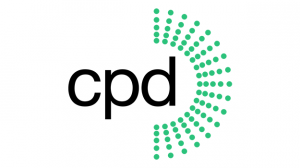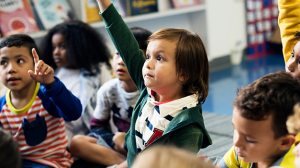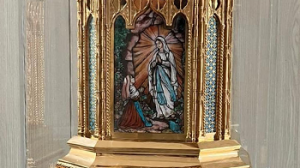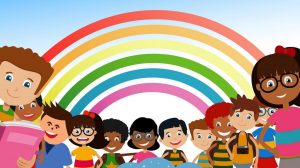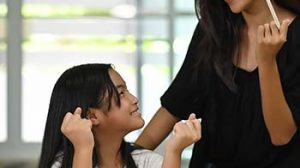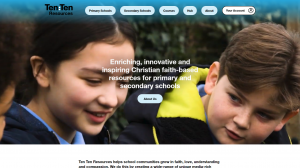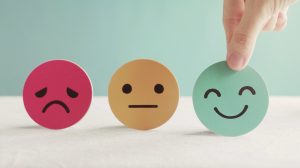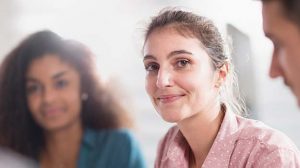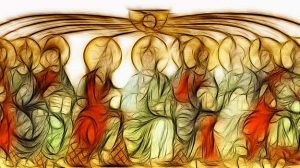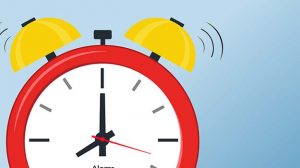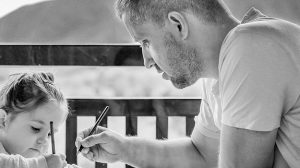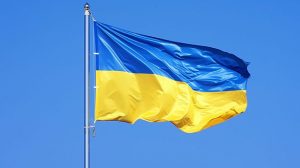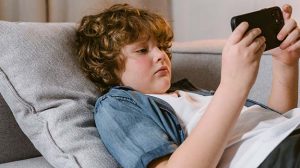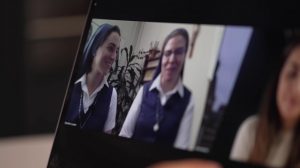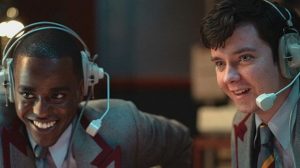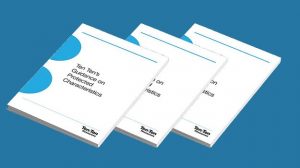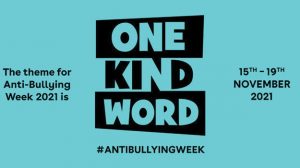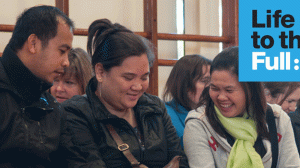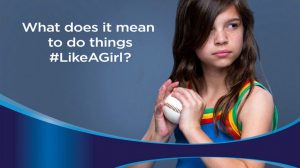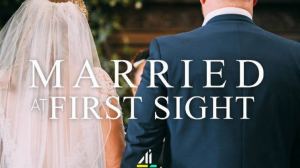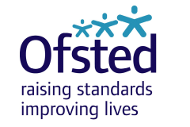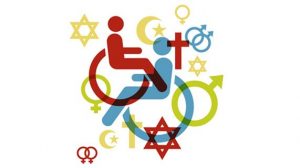
Those working in schools have the dual tasks of educating children about dangers they may face in the future while simultaneously supporting their safety and well-being in the here and now.
The Life to the Full and Life to the Full Plus programmes help build children’s understanding of the dignity of their bodies and the complexity of human emotions and experiences, as well as how to protect and look after their bodies, and respect other people and their bodies and beliefs too.
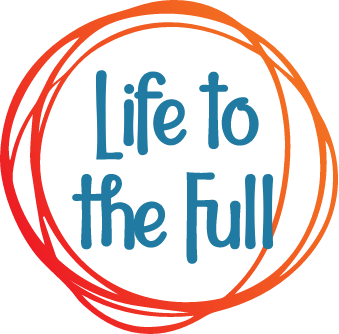
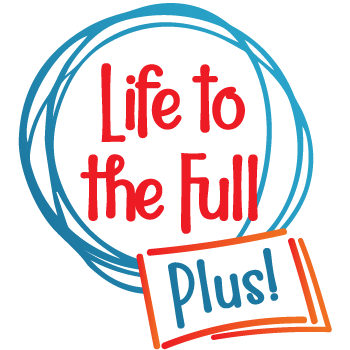
Updates to Unit Structure
With the increase of time that children are spending online, during Summer 2023 we increased our offering of resources linked to online safety. This means that Module 2 now has two distinct units looking at various aspects of safety for each key stage. Unit 3 is ‘Life Online’ and Unit 4 is ‘Personal Safety’.
While the following list is not exhaustive, it does feature key sessions in Life to the Full and Life to the Full Plus which look at topics that will help you to safeguard children in your care…
Resources to Support Safeguarding
Life to the Full
EYFS
Module 2 Unit 3 Session 1: What is the Internet? – an introduction to ways that internet use can be both positive and negative.
Module 2 Unit 3 Session 2: Playing Online – some rules to help children stay safe whilst using the internet.
Module 2 Unit 4 Session 2: My Body, My Rules – an introduction to the concept of bodily privacy, using the NSPCC PANTS message that ‘privates are private’.
KS1
Module 1 Unit 2 Session 2: Boys and Girls – similarities and differences between boys and girls, including the option to name genitalia.
Module 1 Unit 3 Session 3: Super Susie Gets Angry – consequences of behavioural choices and what to do when it all goes wrong.
Module 2 Unit 3 Session 1: Real Life Online – an exploration of how our feelings matter, both online and offline.
Module 2 Unit 3 Session 2: Rules to Help Us – what is and isn’t safe online, told through the story of ‘Smartie the Penguin’ by Childnet.
Module 2 Unit 4 Session 1: Good Secrets and Bad Secrets – the difference between good secrets that are safe to keep, and bad secrets that are unsafe to keep.
Module 2 Unit 4 Session 2: Physical Contact – consolidation of the NSPCC PANTS message for KS1, including optional, age-appropriate mention of FGM.
LKS2
Module 2 Unit 3 Session 1: Sharing Online – what is appropriate and inappropriate to share online, making use of NSPCC resources.
Module 2 Unit 3 Session 2: Chatting Online – cyberbullying and how to deal with requests for inappropriate contact online, making use of NSPCC resources.
Module 2 Unit 4 Session 1: Safe in My Body – an introduction to the term ‘abuse’ and different kinds of abuse, including sexual abuse, here referred to as ‘abuse of private parts’. Also including optional, age-appropriate teaching about FGM.
UKS2
Module 1 Unit 3 Session 2: Peculiar Feelings – in/appropriate ways to deal with negative emotions, particularly concerning taking these out on peers.
Module 1 Unit 3 Session 4: Seeing Stuff Online – the negative effect that pornographic videos and images have on young brains.
Module 2 Unit 2 Session 2: Do You Want a Piece of Cake? – consent and bodily autonomy.
Module 2 Unit 2 Session 4: Build Others Up – the concepts of fairness, bullying, prejudice and discrimination, with reference to the protected characteristics as determined by the Equality Act 2010.
Module 2 Unit 3 Session 1: Sharing Isn’t Always Caring – what is appropriate and inappropriate to share online, making use of NSPCC resources.
Module 2 Unit 3 Session 2: Cyberbullying – bullying online and how to get help, making use of NSPCC resources.
Module 2 Unit 4 Session 1: Types of Abuse – about different kinds of abuse, including sexual. There is also an optional section to discuss, in an age appropriate way, the rights violation that is Female Genital Mutilation – FGM.
Life to the Full Plus
EYFS
Module 2 Unit 3 Session 1: What is the Internet? – an introduction to ways that internet use can be both positive and negative.
Module 2 Unit 3 Session 2: Playing Online – some rules to help children stay safe whilst using the internet.
Module 2 Unit 4 Session 2: My Body, My Rules – an introduction to the concept of bodily privacy, using the NSPCC PANTS message that ‘privates are private’.
KS1
Module 1 Unit 2 Session 2: Boys and Girls – similarities and differences between boys and girls, including the option to name genitalia.
Module 1 Unit 3 Session 3: Super Susie Gets Angry – consequences of behavioural choices and what to do when it all goes wrong.
Module 2 Unit 3 Session 1: Real Life Online – an exploration of how our feelings matter, both online and offline.
Module 2 Unit 3 Session 2: Rules to Help Us – what is and isn’t safe online, told through the story of ‘Smartie the Penguin’ by Childnet.
Module 2 Unit 4 Session 1: Good Secrets and Bad Secrets – the difference between good secrets that are safe to keep, and bad secrets that are unsafe to keep.
Module 2 Unit 4 Session 2: Physical Contact – consolidation of the NSPCC PANTS message for KS1, including optional, age-appropriate mention of FGM.
LKS2
Module 2 Unit 3 Session 1: Sharing Online – what is appropriate and inappropriate to share online, making use of NSPCC resources.
Module 2 Unit 3 Session 2: Chatting Online – cyberbullying and how to deal with requests for inappropriate contact online, making use of NSPCC resources.
Module 2 Unit 4 Session 1: Safe in My Body – an introduction to the term ‘abuse’ and different kinds of abuse, including sexual abuse, here referred to as ‘abuse of private parts’. Also including optional, age-appropriate teaching about FGM. A series of Classroom Shorts called ‘Out and About’ also help children to learn about water, road, rail, firework and digital safety.
Module 2 Unit 4 Session 4: Rights and Responsibilities – identification of legal rights, and scenario-based discussion about where these are compromised. The associated Classroom Shorts ‘We’re Not The Same…’ and ‘…We’re All Different!’ concern diversity, while ‘Right to Vote’ and ‘British Values’ explore ‘democracy, the rule of law, individual liberty, and mutual respect for and tolerance of those with different faiths and beliefs and for those without faith.’
UKS2
Module 1 Unit 3 Session 2: Peculiar Feelings – in/appropriate ways to deal with negative emotions, particularly concerning taking these out on peers.
Module 1 Unit 3 Session 4: Seeing Stuff Online – the negative effect that pornographic videos and images have on young brains.
Module 2 Unit 2 Session 2: Do You Want a Piece of Cake? – consent and bodily autonomy.
Module 2 Unit 2 Session 4: Build Others Up – the concepts of fairness, bullying, prejudice and discrimination, with reference to the protected characteristics as determined by the Equality Act 2010. Classroom Shorts expand on the teaching in the main session, plus ‘Stereotypes’ and ‘Attraction’ look specifically at the Protected Characteristics of sex, sexual orientation. The film ‘Differences’ in an age appropriate way, introduces the concept of gender identity, and what it means to experience gender dysphoria. This film also clarifies how this is different from gender expression and sexual orientation.
Module 2 Unit 3 Session 1: Sharing Isn’t Always Caring – what is appropriate and inappropriate to share online, making use of NSPCC resources.
Module 2 Unit 3 Session 2: Cyberbullying – bullying online and how to get help, making use of NSPCC resources.
Module 2 Unit 4 Session 1: Types of Abuse – about different kinds of abuse, including sexual. There is also an optional section to discuss, in an age appropriate way, the rights violation that is Female Genital Mutilation – FGM. Classroom Shorts explore these topics further, for example ‘Against the Law’ explores practices that are against British law, including honour based violence and human trafficking, and ‘Marriage Can’t Be Forced’ focuses on forced marriage – what it is, why it is illegal in the UK.
Some sessions highlighted above cross over into the area of Sex/Sexuality Education. Please note that for schools in England, sex education is not statutory, therefore, these sessions require consultation with parents before being taught. You can read more about how we have expanded our Key Decisions/Sensitive Topics in RSE across the Life to the Full programme:
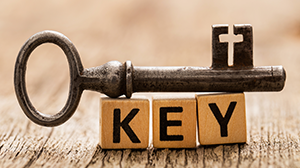
7 Key Areas For Consideration in Life to the Full Primary
Read more about how we have expanded our Key Decisions across the Life to the Full programme
Go to Content

